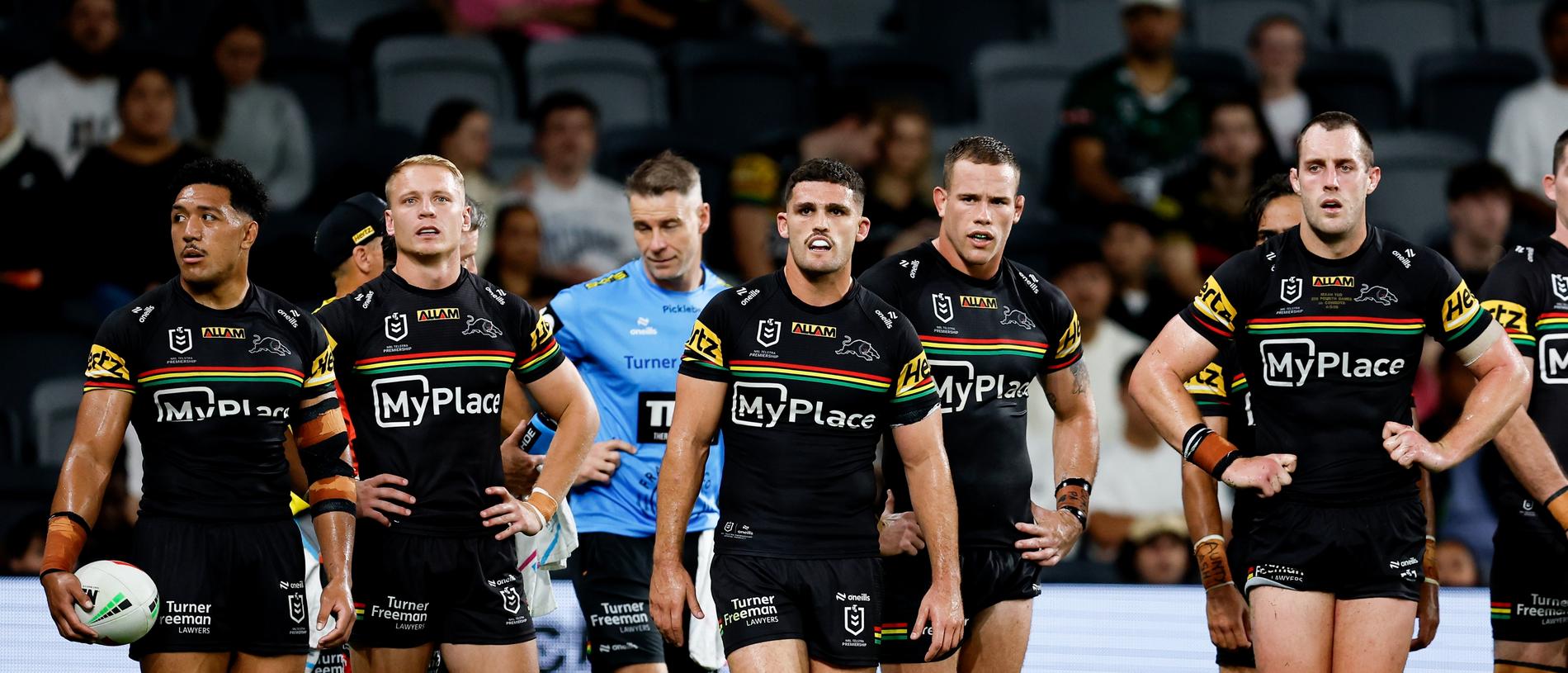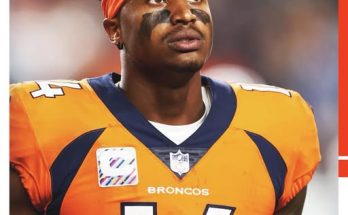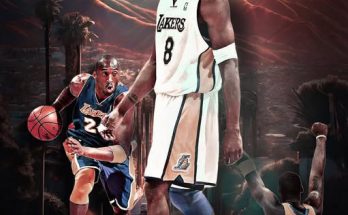The rugby league world watched with disbelief as the Penrith Panthers, reigning NRL champions and a team synonymous with excellence over the past few seasons, slipped into an unfamiliar slump. A side that once carved out a dynasty through relentless defense, unshakeable discipline, and a factory line of youth talent has suddenly found itself second-guessing its identity. For many fans, pundits, and former players, the dip in form has sparked concern—but for one Panthers icon, the reasoning behind the shock downturn is both clear and alarming.
Craig Gower, the former captain who once wore the black jersey with pride and ferocity, has stepped forward to offer his brutally honest take. And in his eyes, this is more than just a rough patch—it’s a wake-up call rooted in everything from structural fatigue to psychological complacency.
“It’s a bit of everything, really,” Gower begins. “People want to blame injuries or individual errors, but when you take a step back, what you’re seeing is the culmination of three, maybe four years of being the hunted. That wears you down. Not just physically, but mentally. Every team wants to knock you off. They prepare for you like it’s a Grand Final. Eventually, that takes its toll.”
Penrith’s sudden fall from grace is statistically jarring. In a span of weeks, they’ve gone from near-certainties to take another minor premiership to struggling to hold down a top-four spot. Their usually bulletproof defensive structure has looked leaky. Their attacking spark, once unpredictable and overwhelming, has dimmed. And for a team that prided itself on attitude and effort, questions about work rate are beginning to circulate.
Gower isn’t pointing fingers at any one player, but rather the environment. “These boys have achieved so much. Three premierships, minor premierships, Origin success. But success can be your biggest enemy. It creates expectations. It creates pressure. You’ve got kids coming in trying to live up to the standard, but it’s not that easy. And you’ve got veterans who’ve been in a pressure cooker for years.”
One of the most defining aspects of Penrith’s modern rise was the emphasis on development. The club invested heavily in its junior systems and local talent, and it paid off handsomely. But Gower warns that when you climb that mountain and stay on top for as long as they have, the margins for error become razor-thin. “Teams figure you out. The Roosters went through it. The Storm went through it. Everyone who’s dominated ends up facing the same challenge: How do you evolve without losing what made you great?”
It’s a question coach Ivan Cleary and his staff are undoubtedly wrestling with. The recent run of form has sparked criticism, especially after losses to sides well below them on the ladder. While Cleary has largely played it cool in press conferences, maintaining that the team’s foundations remain intact, the performance trends are cause for concern.
“It’s not about panic,” Gower emphasizes. “But it is about urgency. The little things—they’re slipping. Missed tackles, dropped balls, poor fifth-tackle options. These are things Penrith used to get right 90% of the time. Right now, that number’s a lot lower.”
What’s perhaps most jarring for long-time followers of the game is the historical context. Penrith’s rise to elite status was not always destined. In fact, for much of the club’s 117-year rivalry history with the competition’s traditional powerhouses—teams like South Sydney, the Roosters, and more recently Melbourne—they were seen as underdogs. The Panthers entered the competition in 1967, and for decades struggled to gain traction.
“We used to be everyone’s easy beats,” Gower recalls with a half-smile. “It was tough in the early days. The old boys, they laid the groundwork. But it wasn’t until the 1990s that we really announced ourselves.”
That 1991 premiership team, led by legends like Greg Alexander and Royce Simmons, marked a turning point. But even that glory faded quickly, with Penrith sliding back into mediocrity for large portions of the 2000s. The modern golden era, kicked off around 2020, represents the club’s most dominant sustained run. And it’s precisely that rise—and the expectations that followed—that have made this slump feel so dramatic.
“When you’re on top, everyone wants to see you fall,” Gower says. “But it’s not about proving people wrong anymore. It’s about proving to yourself that you’ve still got it in you.”
A major element of Penrith’s success has been its culture. The tight-knit squad, many of whom grew up playing together in the area, created a chemistry few other teams could match. Gower warns, however, that as players depart—often for lucrative deals elsewhere—maintaining that culture becomes harder. “You lose a guy like Stephen Crichton or Api Koroisau, it’s not just skill you’re losing. It’s personality. It’s experience. And it takes time to replace that.”
Indeed, as Penrith has tried to blood new talent and adjust to a post-superstar roster, inconsistencies have crept in. The cohesion once seen as automatic now needs to be rebuilt. And while the club’s youth system remains strong, Gower reminds us that it’s unfair to expect every emerging player to be the next Nathan Cleary or Brian To’o.
“There’s a reason those boys are who they are,” he says. “They’re special. You can’t just factory-produce leaders like that. You have to give young guys time to find their voice.”
Some within the Panthers’ camp point to an evolving style of play as a contributing factor. Teams have begun to compress the field more against Penrith, stifling their edge plays and forcing them into high-risk decisions. Gower agrees with the assessment and adds that tactical evolution must be part of the solution.
“You can’t run the same plays year after year and expect it to keep working,” he says. “That’s just not how elite sport works. You need wrinkles. You need adjustments. You need to stay ahead of the curve.”
Despite the frustrations, Gower remains confident the slump is reversible. “Look, these blokes are too good to stay down for long. They’ve got leaders. They’ve got smarts. But it’s about getting back to basics. Rugby league isn’t complicated when you boil it down. You run hard. You tackle harder. You communicate. If they do that, the rest will follow.”
As for comparisons to other great sides in rugby league history, Gower is quick to put Penrith’s recent run in rare company. “Only a handful of teams have dominated like they have. But staying there? That’s the true test of greatness. It’s one thing to win. It’s another to keep winning when everyone wants what you’ve got.”
The club’s storied history—while not as long as some of the 117-year-old rivalries it now finds itself measured against—offers a useful perspective. Penrith’s rise, fall, and rise again have become part of a larger narrative of resilience. From battling through the early years to becoming a feared juggernaut, the Panthers have rewritten their reputation. And now, facing adversity again, they have the chance to show their character.
“You don’t build a legacy in one season,” Gower finishes. “You build it by how you respond when things don’t go your way. And I reckon we’re about to find out a lot about this team in the next few weeks.”
As Penrith prepares for a crucial stretch of games that could define their 2025 campaign, the pressure is immense. But if history has shown us anything, it’s that the Panthers rarely stay down for long. This slump, shocking though it may be, could well be the fire they need to reignite the flame.
Because in the 117 years of rugby league rivalries and changing champions, one truth has remained: greatness isn’t just measured in wins—it’s measured in how you respond when the wins stop coming.



